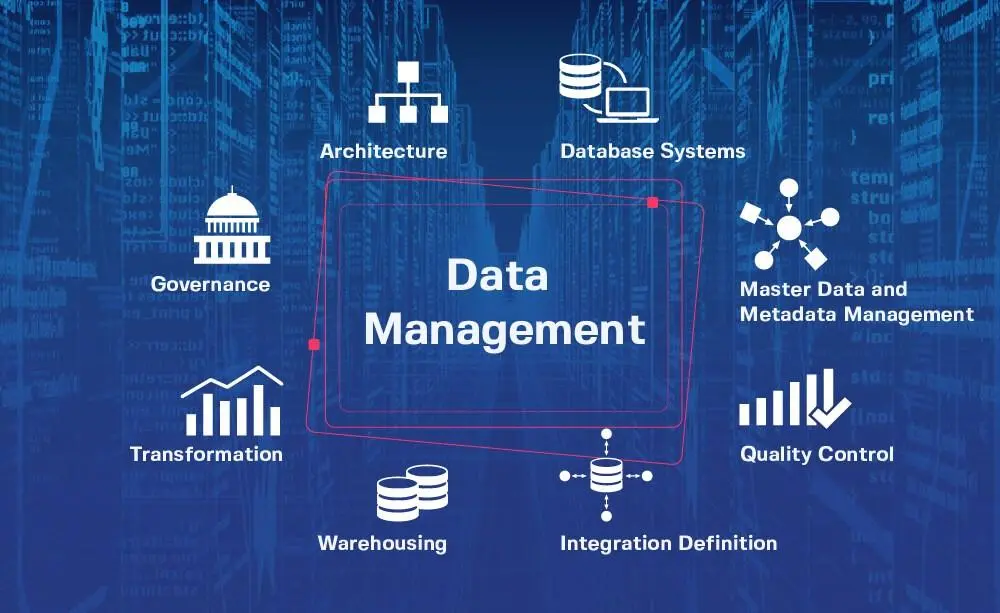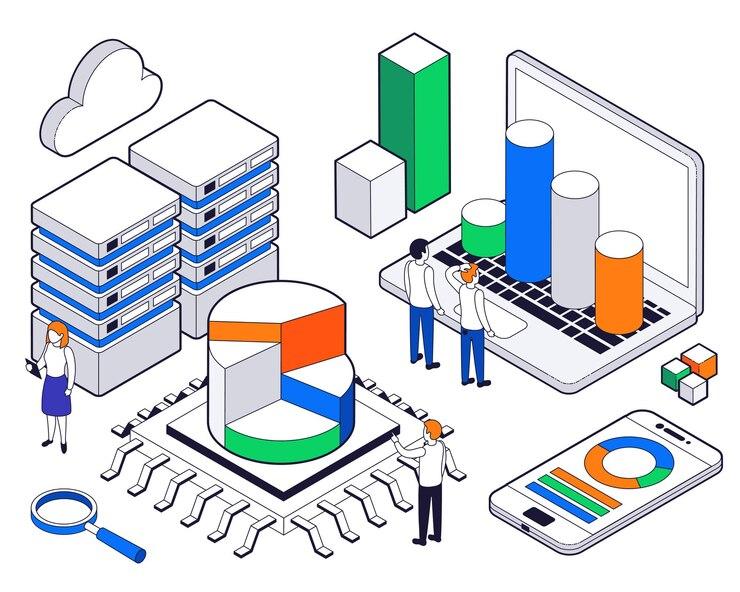Highlights
- EDM guarantees accurate and high-quality data for judgments that are based on facts.
- Appropriate EDM improves risk management, security, and compliance.
- A customized EDM approach supports particular business objectives.
- Ensuring the accuracy and integrity of data requires data governance.
- Frequent audits guarantee the security and efficacy of EDM techniques.
Enterprise data management is a framework that enhances the ability of a company to develop sustainable, smooth, and strong data management practices. This management ensures the achievement of the statistic objectives of a business.
Generally, an inbound IT team of a company normally manages this, but that costs a considerable sum. So, more and more organizations are shifting their focus to acquiring professional enterprise data services.
Enhanced Data Reliability
EDM is a framework that considers your company’s data as a strategic asset. It enhances the overall reliability, usability, and regulatory compliance of your data assets. Basically, it’s a mechanism that can carry reliable and high-quality data which helps in making data-driven decisions for your company. It will allow you to develop fact-based policies to get the maximum value from your data.
What is Data?
Data definition is quite abstract. It seems like it’s just a bundle of zeros and ones floating around in the computer. However, data is an umbrella term that refers to different kinds of information for different people.
However, what we call data in this blog is the collection of raw facts, statistics, and information from various sources. These sources can be customers, suppliers, sales transactions, market research, internal interactions, website analytics, etc.
The variety of data that the company deals with highly depends on the nature of the industry. For example, in the finance sector data will include account details, transaction history, balances, clients information, financial history, etc. Whereas for data consultants, it would be file backups or solution histories that they have offered to their clients.
What is Enterprise Data Management?
It is a holistic approach to handling and governing your organization’s data across its entire lifecycle. EDM refers to inventorying the data to make data-driven decisions to achieve business goals.
With enterprise data services, you will have the strategic framework to manage enterprise data. These services will handle the highest standard of data quality, security, and accessibility. It means they will include all the tools and processes to make data usage easy for your organization.
It’s not a one-man job. So, if you think a person or two will be able to manage the huge amounts of data then you are mistaken. By outsourcing this data management you will get the expertise of database administrators, data scientists, IT administrators, and data stewards.
The Significance of Enterprise Data Management
EDM importance is far more than just keeping data neat and organized. It’s a grand scheme of things where EDM drives innovation and competitive differentiation.
- Decision Making
With an effective EDM, organizations have access to reliable and up-to-date information to make informed decisions that generate better outcomes. It is particularly important for landscapes where decisions have to be made quickly to meet the market dynamics.
- Risk Management
Non-compliance with data protection laws and data breaches are serious disasters in today’s world that can cost not just money but also the reputation of organizations. EDM frameworks help with these risks. It implements a strict data governance and security plan that ensures a safe organization’s data handling practices. Moreover, EDM ensures that data handling is in line with all legal requirements.
- Operational Efficiency
EDM facilitates more efficient operations by eliminating data silos and guaranteeing high-quality data. It lowers operating costs and boosts productivity because workers spend more time on value-adding tasks. They don’t have to look for data and fix errors.
- Way to Innovation
Analytical and machine learning models can be powered by well-managed, high-quality data, providing insights that have the potential to revolutionize consumer experiences and product offerings. EDM is significant and necessary in the digital age. It allows a business to differentiate itself from its rivals through the strategic use of data.
Enterprise Data Management Strategy

An enterprise data management strategy refers to a comprehensive plan that Data management service providers create to outlines how an organization’s data is handled throughout its lifecycle. It’s a roadmap that covers the storage, Integration, acquisition, protection, and utilization of data. It ensures that data is a valuable asset for your business.
EMD is more than just the technical aspects of data handling. It considers the human factors involved in data management. In simple words, it creates a culture that prioritizes collaboration, communication, and training with the goal of leveraging data for organizational success.
Creation of Enterprise Data Management Strategy
You can’t have one strategy for all kinds of data. So, we come up with a generic outline of what you can follow as an enterprise data management strategy.
Business Goals and Data Needs
Start by coordinating your EDM strategy with the overarching business objectives of your company. Determine the precise data requirements needed to help achieve these objectives. What answers are you looking for from your data?
Data Governance and Inventory
Take stock of your present data landscape using Data Inventory and Governance. This includes:
- Mapping out all of your data sources
- Recognizing their formats
- Evaluating their quality
- Determining who owns what
- Setting up security and access restrictions.
Change Management and Training
Make the transition to a data-driven culture within your organization and provide your staff with continuous training to help them become data literate.
Technology and Tools
Provide the infrastructure and software your team needs to manage enterprise data at scale. Platforms for data management, tools for data integration, and other solutions fall under this category.
Metrics and Performance Monitoring
Define key performance indicators to track the efficacy of your business data management strategy and identify opportunities for improvement.
EDM Framework

The general purpose of the EDM framework is to convert metadata into information that could help in making decisions.
Data comes in a variety of formats from various sources in different quantities. This data when flowing in your company greatly consumes data management capabilities. It causes performance degradation and users will have slower response times and issues like system freezing etc.
- You have to consider the following while considering the EDM framework for your company’s data.
- Kinds of data that is stored
- Data volume
- How much data is produced on a daily, monthly, and yearly basis?
- Why you need the data
Best Practices for Enterprise Data Management
- Creation of Data Strategy
Create a thorough strategy that is in line with the objectives of the organization to develop a data management plan. This stage should identify the most important data and provide the guidelines for integration, quality assurance, and appropriate governance.
- Establish Data Governance
Establish a framework for data governance that outlines roles, duties, and ownership. It should be primarily based on the suggestions and rules for data use, security, privacy, and quality included in ISO 38505 standards.
- Data Accuracy and Integrity
Prioritize data accuracy and integrity in data quality management. To guarantee excellent data quality, put data cleaning, validation, duplication removal, and other strategies into practice.
- Master Data Administration
To prevent duplication and inconsistencies, keep the business’s data in a single, consistent view. It ensures that the same data points are used for analysis and decision-making across all business divisions.
- Employ the Right Software and Tools
To handle, store, and analyze data, make use of technologies like business intelligence, data warehousing, and ETL (Extract, Transform, Load) tools.
- Assure Data Security
Guard your information against intrusions and make sure all applicable laws are followed. To ensure data security, use encryption, safe data storage, and frequent audits.
- Regular Audits
Make sure your EDM approach is still applicable and efficient by periodically reviewing and updating it. This can entail examining the security, consistency, and quality of the data.
Conclusion
For organizations to fully utilize their data and promote improved decision-making, efficiency, and innovation, enterprise data services are essential. Businesses can guarantee operational success, compliance, and data correctness by putting in place a thorough EDM plan. To help you achieve your business goals Tambena Consulting is here to help you with enterprise data management.






